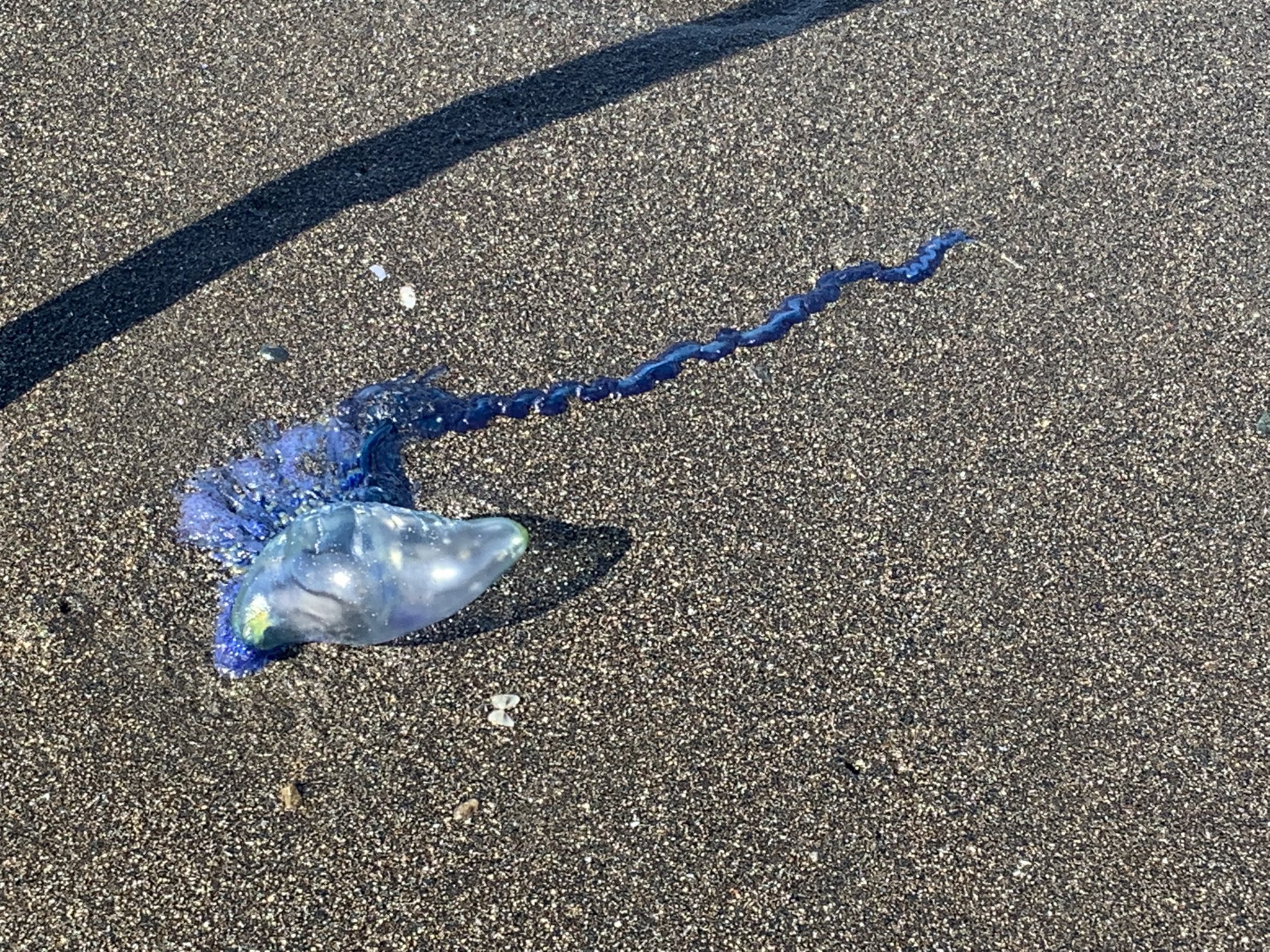Man O’ War: Deadly Marine Intruder Forces Beach Closures Across France's Basque and Landes Coasts
A dozen of France’s most popular Atlantic beaches have been shut down amid growing alarm over the sudden appearance of the Portuguese man o’ war, a venomous marine creature often mistaken for a jellyfish.
The closures, which took effect July 25, have disrupted peak summer travel plans for thousands of European tourists and drawn fresh attention to the shifting ecological patterns along the Basque and Landes coastlines.
 |
| Image Source: Bunburyodo on X |
Authorities in Bidart, a commune in the Pyrénées-Atlantiques, were among the first to issue red flag warnings after sightings of the toxic species at Pavillon Royal, Uhabia, Centre Beach, Erretegia, and Ilbarritz.
Nearby Biarritz and Anglet followed suit, with popular destinations such as Marbella, Milady, Petite Chambre d'Amour, and Marinella now also off-limits. In the Landes region, beaches at Seignosse and Lit-et-Mixe were similarly closed to swimmers due to multiple confirmed strandings.
The Portuguese man o’ war, though often floating serenely at the surface, is a dangerous siphonophore with tentacles that can extend up to 30 metres. Found mainly in tropical and subtropical waters, it is rarely seen in such numbers along the French Atlantic coast.
Marine biologists attribute this unusual migration to changing wind patterns and warmer water temperatures that may be altering their traditional routes.
The venom in their tentacles remains potent even after the organism is washed ashore, posing a serious threat to beachgoers who may mistake it for harmless sea life.
Stings can cause intense pain, large welts, and in rare cases, trigger severe allergic reactions. While fatalities are uncommon, the creature’s sting has been documented as lethal to small fish and potentially harmful to humans, especially children or those with pre-existing health conditions.
The closures come during the height of France’s summer tourism season, especially in Nouvelle-Aquitaine, where coastal towns rely heavily on seasonal visitors.
Local authorities have advised residents and tourists alike to avoid contact with any marine life washed ashore and to report sightings to lifeguards immediately.
Public awareness campaigns and signage are now in place, warning of the risks and offering guidance on what to do in case of stings.
Experts stress that even a dried-out man o’ war can still release venom, making it critical to avoid handling them directly.
This latest disruption underscores growing concerns about the impact of climate change and ocean warming on marine biodiversity and human safety along European coastlines.
As beach destinations in France face mounting environmental challenges, tourists are being urged to stay informed and take precautionary measures while enjoying the country’s renowned shores.
